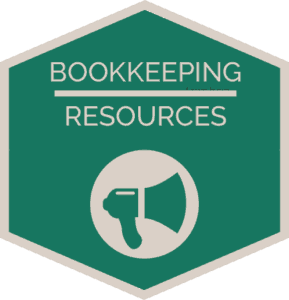Get out your calculator and start setting some revenue goals.
If you’re a business owner, you likely have some revenue goals. (If you don’t, keep reading. We’ll help!) But what if you fail to meet them? It could be the market, sure, but it could also be because you haven’t done the right math. The good news? That math is pretty easy, and it will help you to get your business and revenue on track.
Annual Revenue Goals Are Great. Daily Revenue Goals Are Better.

You aren’t going to work 365 days each year (and if you are, stop). Life is about living – and life is also about sh*t happening. You’ll get sick. You’ll take vacations. There are holidays. And, we highly suggest you avoid working weekends if you want to avoid burnout.
Timeanddate.com has a handy calculator to help you determine the number of actual business days in a calendar year. For 2018, the number of business days minus weekends and holidays is 250. So your revenue goal, based on 250 available working says, is actually $400 a day.
No one likes to fail, and no one can grow without stretching a bit. The key to a goal is to both keep it realistic, but make it just a liiiiitle bit beyond what you think you can do. Kinda like in yoga class – stretch a little bit further, a little bit longer, and a little bit deeper and you get better and better at it. You have to ask yourself “Is my daily revenue goal legit? Is it really doable with the time and resources I have available?”
Figure Out How Many Billable Hours You Have to Work With.
If you have eight hours scheduled for work each day, how many of those hours are billable?
You have to factor in the time you spend marketing, networking, managing employees or subcontractors and completing administrative tasks – all of which are sadly NOT billable. Once you look at everything you do in a day that isn’t billable, you might only have four hours in which to make money.
Now you might be thinking, I don’t bill by the hour, I bill by the project. The same rules apply, because if you are human (which you probably are) you only have 168 hours in every week.
You can only take on so many projects with the time that you have. Your first step into working out this math is to determine your revenue goals, figure out the average number of hours you work per project, and then establish how many projects you can take on per year.
So, Let’s Talk About Those Rates.
Taking your daily revenue goals and available billable hours into consideration, are you charging enough for your services? Your fees need to be competitive AND bring in a profit. If you have four billable hours in each day and want to hit your target of $400 a day, you need to charge $100 an hour or more. If that’s in line with your industry, then you’re in great shape. If not, you may need to make some changes and either reevaluate your revenue goals, your service offerings or your pricing.
Knowing What You Now Know, Are Your Goals Realistic?
Maybe once you’ve done all this math, you’ll realize that there’s no way you can meet your goals with your current time and resources. That’s not a bad place to be, because you have options! You can:
- hire employees or contractors so you can take on more clients.
- boost marketing and hustle to get new business.
- outsource non-billable tasks so you can spend more time working (heyyyyy like bookkeeping 🙂 – book a time to chat with us here)
- explore ways you can automate your business, so you can spend less time being hands-on
- work longer days (This is okay for a while, but don’t plan on doing this forever. You’ll burn out!)
Once you have the math down, it’s not only easy to see if your goals are realistic; it’s also easy to measure whether or not you’re meeting them on a day-to-day basis. LUCKY FOR YOU…we have a handy sales goal tracking spreadsheet you can download. Keeping track of the money you make every day will help you stay on target for the money you want to make for the year. Go get ‘em tiger!

